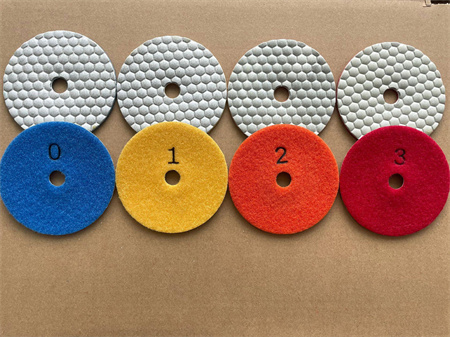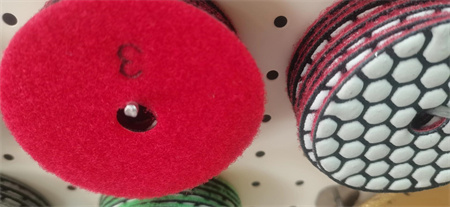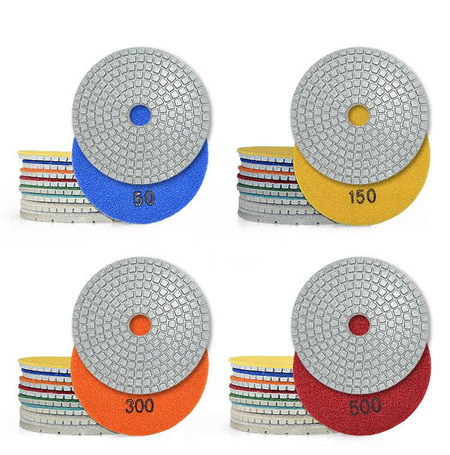The Most Durable Diamond Pad Backing Materials
When it comes to polishing, grinding, or cutting with diamond pads, the backing materials used play a crucial role in determining the overall performance and longevity of the pads. A great diamond pad isn’t just about the diamond particles; the material that holds everything together is just as important. With so many different options out there, selecting the right backing material can make all the difference in the efficiency and lifespan of your diamond pads. So, what are the most durable materials for backing diamond pads, and how do they stand up under pressure?

Equally strong but a bit more rigid is resin-based backing material. Resin is frequently used because it provides excellent bonding strength while also being relatively light. Resin-backed diamond pads are highly resistant to wear, making them an ideal choice for high-speed grinding and polishing. While they may not offer the same level of flexibility as polyurethane, the rigidity of resin makes it incredibly durable under intense grinding pressure. Resin backings also stand up well against moisture, which is essential when working in wet conditions like floor polishing or stone processing.
For those who need something that can handle the toughest applications, metallic backings are the go-to choice. These backings are often made from aluminum or steel, providing superior durability and strength. Metallic pads can endure extreme temperatures, high forces, and harsh working conditions, which makes them perfect for heavy-duty grinding tasks. The metal’s rigid structure ensures that the diamond abrasives are firmly held in place, providing a stable working surface for high-precision tasks. However, metallic-backed pads are typically used for more specialized tasks such as concrete floor preparation or aggressive surface grinding.
In addition to these traditional materials, hook-and-loop backings have gained popularity in recent years due to their convenience and versatility. These backings use a Velcro-like system to allow for quick changes of pads, which is a significant advantage in industries where time is money. Hook-and-loop systems can be made with a variety of materials, but the most durable ones often feature a combination of high-quality polyurethane or rubber mixed with a sturdy Velcro attachment. These backings allow users to switch out worn pads easily while still providing a solid and reliable attachment for optimal performance. While not as rugged as metal backings, hook-and-loop systems offer a balance of convenience and durability that many professionals appreciate.
Another emerging contender in the diamond pad backing world is rubber. While rubber may not be as rigid as resin or metal, it’s incredibly durable in specific conditions. Rubber-backed pads are known for their ability to absorb shock, which is beneficial when working with delicate surfaces that can be easily damaged. They also provide excellent grip, making them ideal for use on uneven or porous materials where you need the pad to conform to the surface. Rubber is also resistant to wear and tear, providing a long lifespan even in demanding environments. However, rubber-backed pads tend to be more suitable for light to medium grinding tasks rather than heavy-duty applications.
The choice of backing material for diamond pads ultimately depends on the specific application and the desired results. For heavy-duty applications that require the toughest performance, metal backings are hard to beat. They offer unrivaled durability and strength, making them perfect for industries that deal with intense grinding and polishing tasks. On the other hand, for versatility and ease of use, hook-and-loop and rubber backings provide a convenient solution without sacrificing too much on durability.
If you need something that strikes a balance between flexibility, strength, and resistance to wear, polyurethane and resin-based backings are the most popular options. Both materials are well-suited to a wide range of polishing and grinding tasks, providing consistent performance in a variety of conditions.

